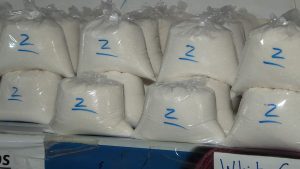USDA Flags Screwworm Outbreak in Belize, Imposes Import Curbs
The U.S. Department of Agriculture (USDA) has added Belize and El Salvador to its list of regions affected by New World Screwworm (NWS), a dangerous parasitic pest that poses serious risks to livestock, pets, and wildlife. The designation follows confirmed outbreaks in both countries, prompting import restrictions on horses, ruminants, swine, and dogs entering the United States.
These animals must now be inspected and treated before entry to prevent reintroduction of the pest.
In Belize, the outbreak is rapidly spreading. As of May 7, the Belize Agricultural Health Authority (BAHA) and the Ministry of Agriculture, Food Security, and Enterprise (MAFSE) reported 70 confirmed cases of NWS, primarily in southern and western regions including Toledo, Stann Creek, Cayo, and parts of the Belize District.
While 90-day quarantines have been lifted in infested zones, movement permits and NWS Health Inspection Certificates remain mandatory. Treatment with Ivermectin (or Doramectin for horses) is required before moving animals from infested to non-infested areas such as Corozal and Orange Walk.
Pet and backyard animal owners are being urged to inspect wounds regularly and report any signs of myiasis (larval infestations). Entry and transport of animals across control points, Sandhill, Bullet Tree Falls, and Jalacte, must comply with strict declaration and inspection protocols. Violations of Statutory Instrument 143 of 2024, which governs screwworm control, carry penalties of up to $5,000 BZD or three years’ imprisonment.
In Washington, Agriculture Secretary Brooke Rollins told the House Agriculture Committee that she is preparing to unveil a groundbreaking federal strategy to tackle the growing threat. She characterised the plan as “unlike anything seen before” and said she expects strong congressional backing.






Facebook Comments